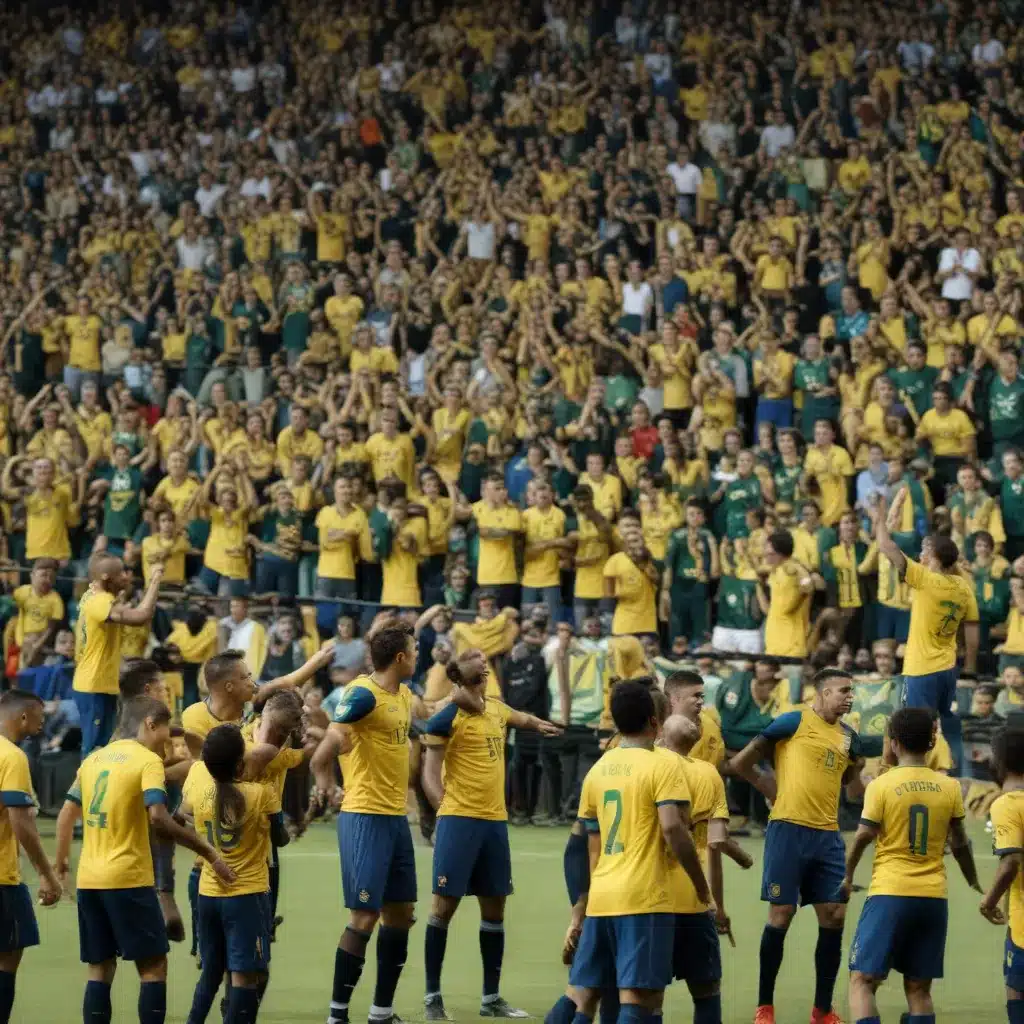
The Campeonato Brasileiro Série A
The Campeonato Brasileiro Série A, known affectionately as the Brasileirão, is the top division of professional football in Brazil. Boasting a rich history dating back to 1959, this league has long been revered as one of the most competitive and entertaining in the world. From the legendary clubs of São Paulo and Rio de Janeiro to the emerging forces from the northeast, the Brasileirão has consistently produced a tapestry of tactical innovation, iconic players, and fervent fan cultures.
Key Teams and Players
Over the decades, the Brasileirão has been dominated by the traditional powerhouses – Flamengo, Corinthians, São Paulo, Internacional, Cruzeiro, and Atlético Mineiro. These clubs have cultivated distinct playing identities, from Flamengo’s swashbuckling, attacking flair to Atlético Mineiro’s solid, organized defensive structures. Iconic players like Pelé, Zico, Ronaldo, Kaká, and Neymar have all graced the pitches of the Brasileirão, cementing the league’s status as a breeding ground for world-class talent.
Tactical Philosophies
The Brasileirão has always been a melting pot of diverse tactical approaches. The possession-based, technical style popularised by the likes of São Paulo and Corinthians has coexisted alongside the high-intensity, counterattacking methods championed by Atlético Mineiro and Flamengo. In recent years, the influence of European coaches has also seen the emergence of more structured, pressing-oriented systems, as teams seek to emulate the tactical trends of the continent’s top leagues.
Specialized Tactical Mentoring
One of the most intriguing developments in the modern Brasileirão has been the growing emphasis on specialized tactical mentoring. As the game has evolved, clubs have recognized the value of dedicated tactical analysts and coaches who can provide detailed insights and tailor training sessions to optimise performance.
Role of Tactical Analysts
The role of the tactical analyst has become increasingly vital in the Brazilian game. These individuals are responsible for meticulously breaking down the opposition, identifying their strengths and weaknesses, and providing the coaching staff with actionable intelligence. Through the use of advanced analytics, video analysis, and detailed scouting reports, tactical analysts have become indispensable members of the backroom team.
Coaching Strategies and Methodologies
Alongside the rise of the tactical analyst, Brazilian clubs have also placed a greater emphasis on specialized coaching methodologies. Managers are now expected to have a deep understanding of the latest tactical trends, as well as the ability to implement bespoke training drills and game plans tailored to their squad’s strengths. This has led to the emergence of a new generation of coaches who prioritize tactical nous over purely man-management skills.
Player Development and Talent Identification
The focus on tactical mentoring has also had a significant impact on player development and talent identification. Clubs are now investing heavily in youth academies, ensuring that young players are immersed in the tactical intricacies of the game from an early age. This holistic approach to player development has helped to produce a steady stream of technically adept, tactically astute footballers who are well-equipped to thrive in the modern Brasileirão.
Emerging Tactical Trends
As the Brasileirão continues to evolve, several tactical trends have emerged that have transformed the landscape of the domestic game.
Possession-Based Approaches
In recent years, there has been a noticeable shift towards possession-based, proactive styles of play in the Brasileirão. Clubs like Fluminense, Athletico Paranaense, and Fortaleza have embraced a patient, ball-dominant approach, utilizing their technical players to control the tempo of the game and wear down their opponents. This tactical evolution has been influenced by the success of European clubs that have mastered the art of possession football.
High-Pressing Tactics
Alongside the rise of possession-based approaches, the Brasileirão has also witnessed the increasing prevalence of high-pressing tactics. Teams like Atlético Mineiro and Flamengo have implemented aggressive, coordinated pressing systems that seek to win the ball high up the pitch and quickly transition into dangerous attacking positions. This intense, energetic style of play has become a hallmark of the modern Brasileirão, challenging teams to be more adept at ball retention and decision-making under pressure.
Counterattacking Strategies
Despite the growing emphasis on possession-based and high-pressing tactics, the traditional Brazilian counterattacking approach has not been entirely abandoned. Clubs like Athletico-PR, Fortaleza, and Fluminense have demonstrated the continued value of clinical counterattacking, utilizing their pacy, skilful forwards to devastating effect. This tactical flexibility has become a hallmark of the Brasileirão, as teams adapt their styles to best suit the strengths of their squads.
The Influence of International Coaching
The Brasileirão has long been a melting pot of tactical influences, with the influx of foreign coaches playing a significant role in shaping the evolution of the domestic game.
Integration of Foreign Tactical Expertise
The arrival of renowned coaches from Europe, South America, and beyond has brought a wealth of tactical knowledge to the Brasileirão. Managers like Jorge Jesus (Flamengo), Abel Ferreira (Palmeiras), and Tite (Brazil national team) have introduced new coaching methodologies, emphasizing aspects such as positional play, high-intensity pressing, and intricate attacking patterns. This cross-pollination of ideas has helped to broaden the tactical horizons of the Brazilian game.
Adaptations to the Brazilian Football Culture
While international coaches have undoubtedly made a significant impact on the Brasileirão, they have also had to adapt their approaches to the unique culture and traditions of Brazilian football. The passionate fan bases, the demanding media landscape, and the high-intensity nature of the domestic calendar have all required these foreign tacticians to find the right balance between innovation and integration.
Impact on the Domestic Game
The influence of international coaching expertise has had a profound impact on the Brasileirão, as clubs have sought to emulate the success of these foreign-born tacticians. The increased emphasis on specialized tactical mentoring, the evolution of playing styles, and the development of a new generation of versatile, tactically-adept players have all been shaped by this cross-cultural exchange. As the Brasileirão continues to grow in stature on the global stage, the interplay between domestic and international coaching philosophies will undoubtedly remain a key driver of the league’s ongoing tactical evolution.

